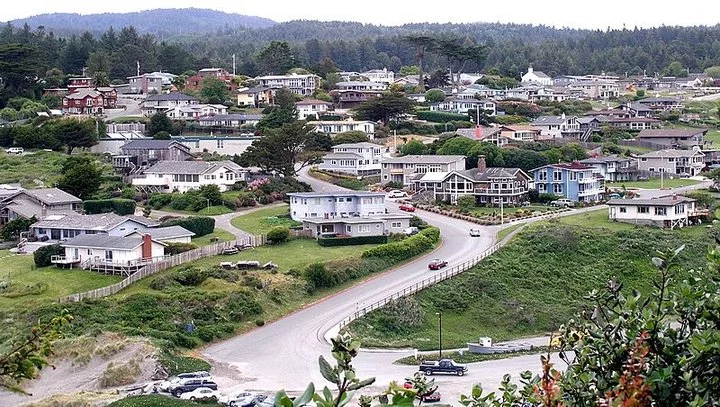Trinidad. | Photo by Coolcaesar, via Wikipedia. Creative Commons license.
###
It’s no surprise that the beautiful beach-side city of Trinidad relies heavily on tourism dollars to keep the town afloat. That’s why Trinidad officials are asking voters to approve Measure P, which would raise the city’s tourism occupancy tax (also known as a transient occupancy tax or TOT) – a fee paid on hotels and other short-term rentals to help fund city services.
The tax, something that is similarly implemented throughout most of the United States, goes toward the city’s general fund and is used for things like road repairs, trail maintenance and paying firefighters and police. If Measure P passes, Trinidad’s TOT would increase from eight to 12 percent – the same amount as Humboldt County, after voters approved Measure J in the June primary.
But wait, isn’t Trinidad’s TOT actually 10 percent? Well, you might think so, if you’ve stayed in a hotel there sometime over the last decade. More than 10 years ago, the Trinidad City Council approved raising the city’s TOT to 10 percent without putting the issue on the ballot for voters to decide. In December 2021, the current council approved raising the tax to 12 percent starting in 2022. But just before the slated increase took effect, the council was made aware that this action runs afoul of Proposition 218, which requires local governments to get majority voter approval on all new or increased taxes. Whoops!
When this blunder was brought to the current council’s attention, the council passed a resolution reversing the slated increase and lowering the tax from 10 percent back to eight percent – what it was before the illegitimate increase. Of course, this means that Trinidad has been overcharging its hotel and vacation rental guests for more than 10 years. To correct this oversight, the City of Trinidad has been refunding the operators of local hotels and short term rentals.
Eli Naffah, Trinidad’s city manager, told the Outpost that the city sent out notifications to the businesses earlier this year about the refund, and at this point has heard back from most of them. After the businesses are refunded the overpaid tax amounts, it is up to them to refund the guests who had paid it. Naffah is not entirely sure how each business is going about that, but said that Trinidad does have a lot of repeat visitors, so some businesses are letting guests know when they make reservations that they are owed a refund for their previous stays.
The reason the council had made this mistake in the first place, Naffah said, is because Trinidad’s TOT ordinance, which was passed in 1990, included the ability for the council to approve a raise in the tax. So the council was just following what was permitted by city code. After Proposition 218 passed in 1996, no one ever rewrote the ordinance to bring it into compliance with the new law.
So the city made a big mistake and now is paying for it in more ways than one. Not only must the overpaid taxes be refunded, but Trinidad is now back at charging the TOT that it was charging more than a decade ago.
“Now we’re currently charging 1990 rates,” Naffah told the Outpost. “That’s why we need to bring it up to 12 percent again.”
One of the other reasons Trindad is badly in need of the tax increase, Naffah said, is because of the loss of other revenue streams. With the Trinidad Rancheria successfully placing the harbor in the federal trust, the city will no longer make any sales or property tax off of the harbor properties, which includes the Seascape Restaurant. The city has also lost roughly $60,000 from the removal of the cell towers on Trinidad Head.
But Michael Morgan, a former city councilmember and owner of Trinidad Bay Bed and Breakfast, says that a four percent tax increase is too much, especially during a time when people are still recovering economically from the impacts of the pandemic.
“With the highest inflation in decades, and a recession that may lead to a depression, raising taxes and spending is exactly the opposite of what would help our economic crisis,” Morgan wrote in his submitted argument against Measure P.
Morgan argues that it is not a fair or reasonable time to charge Trinidad’s visitors more and suggests that the city propose a two-percent increase instead, until the we “get back to a more stable and sound economy.”
But proponents argue that inflation is also part of why Trinidad needs to increase the tax, which pays for services – such as road and trail repairs, and salaries for police, firefighters and city staff – that now cost more.
“This measure ensures out of town visitors pay their fair share for local services,” the argument for Measure P states. “Voting yes on measure P will support the local tourism economy through jobs and provide locals and visitors alike with a positive experience in Trinidad.”
You can read more about Measure P on the City of Trinidad website.

CLICK TO MANAGE